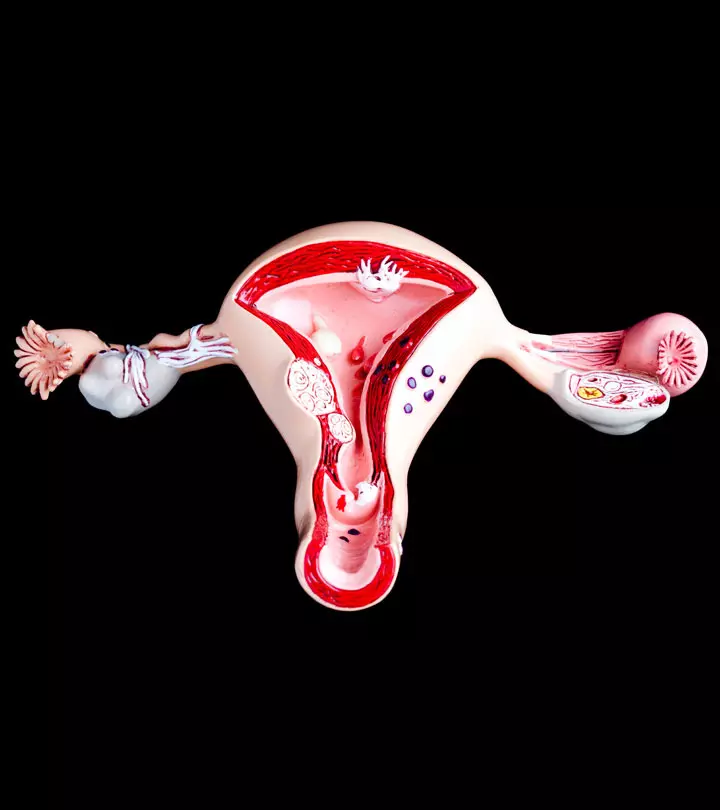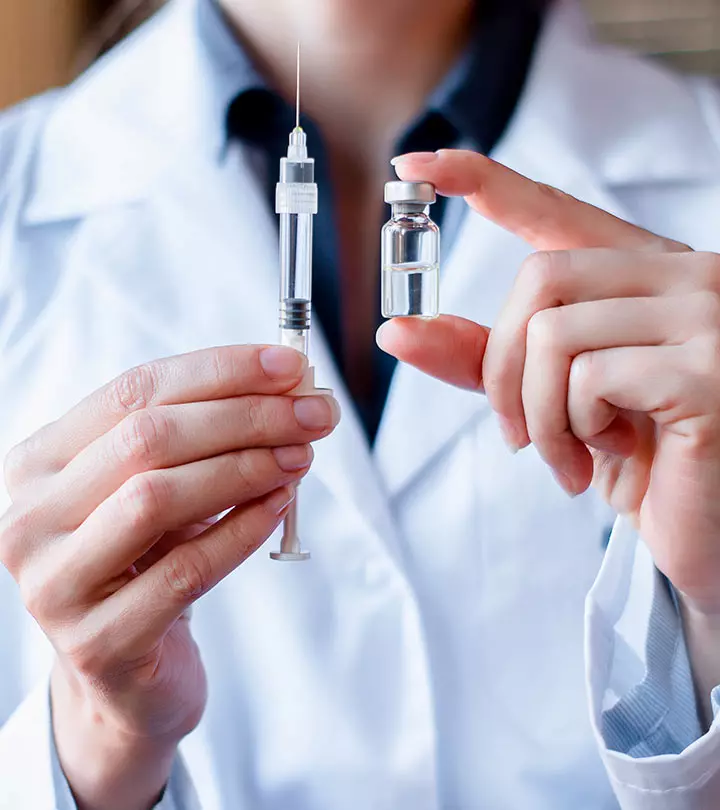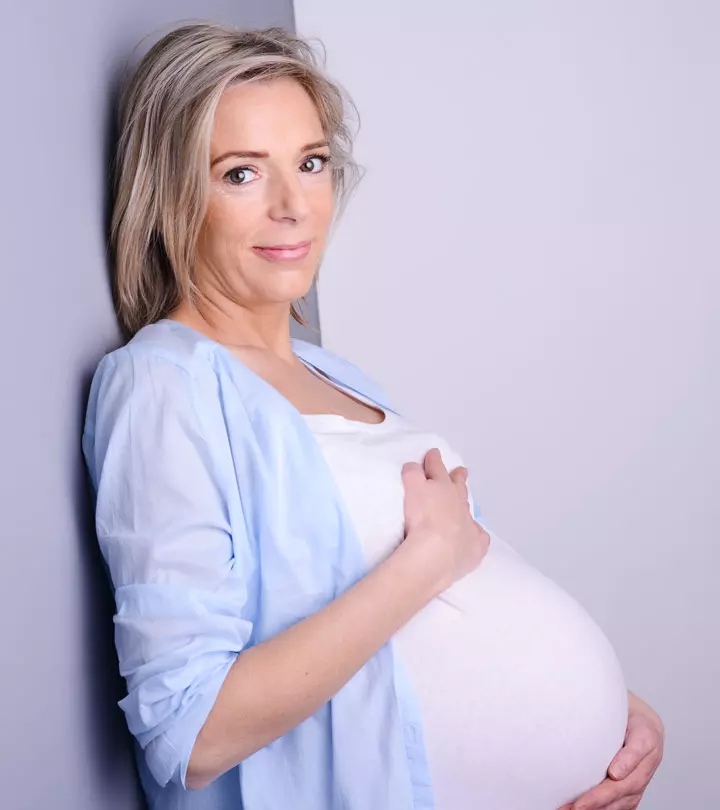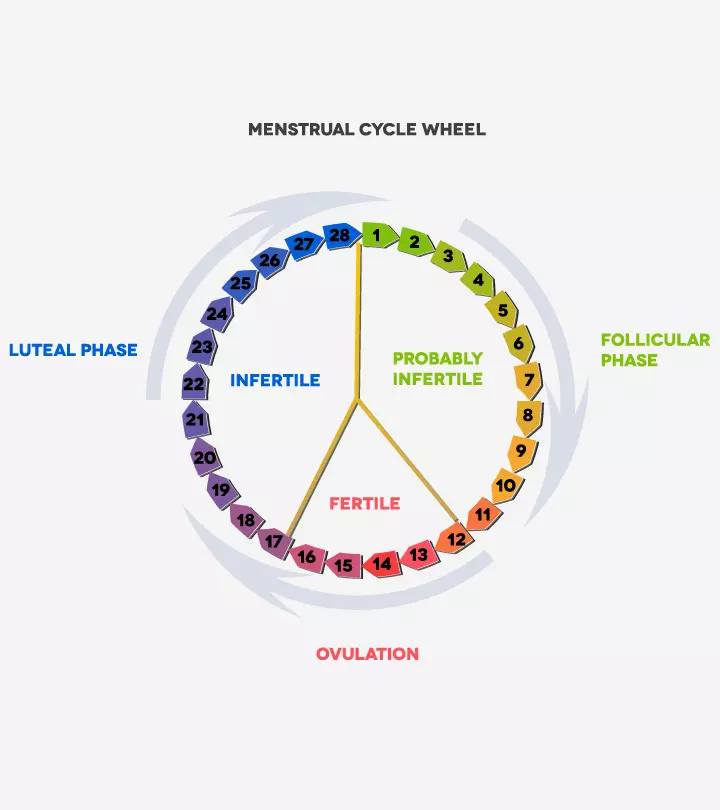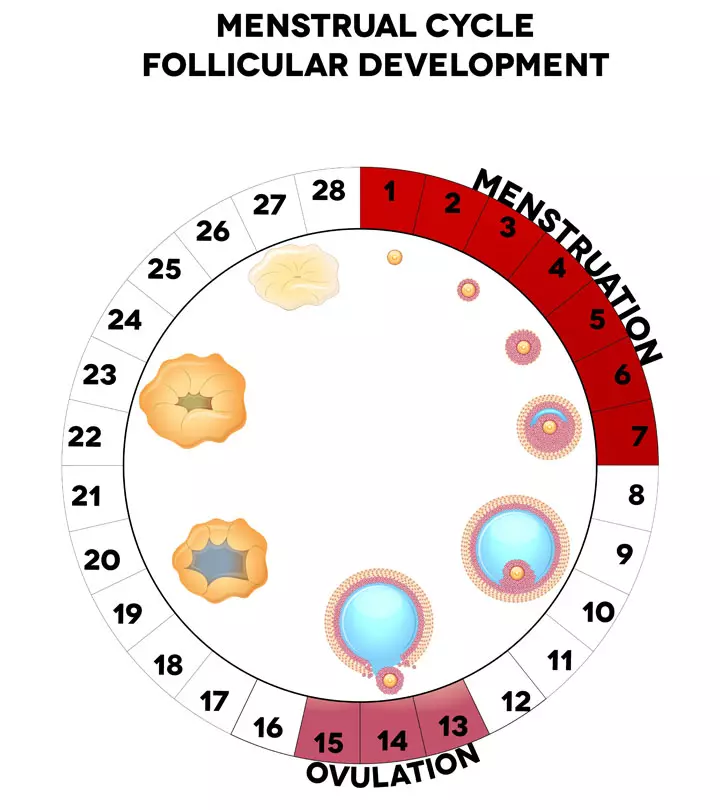
Image: ShutterStock
If you have been trying to conceive, you may have heard of ovulation. Your fertile period, or ovulatory days, is crucial in planning your baby. These are the days your ovary releases an egg. However, can you ovulate twice in a month?

It is universally proven that women ovulate only once a month or cycle. You ovulate around day 14 of a 28-day menstrual cycle, and your most fertile days are days 12, 13, and 14. However, recent research shows that this may not be the case (1). So, can you ovulate twice in a month?
According to a recent study conducted in the United States, women tend to ovulate more than once a month. This could provide a better window of opportunity to conceive, increasing the chances of a successful pregnancy.
Read on to know more about multiple ovulations, including their causes, factors, ways to track double ovulation, and some useful basic ovulation metrics.
Key Pointers
- Women normally ovulate once a month during their menstrual cycle, usually around day 14.
- According to some studies, some women may ovulate more than once a month.
- During ovulation, the cervix secretes a thin fluid that lubricates and helps sperm access the egg, known as the fertile phase.
- Multiple ovulations are more likely when considering infertility therapies and family history.
- Couples can consult a fertility doctor to monitor double ovulation or use an at-home ovulation prediction kit.
How Ovulation Works ?
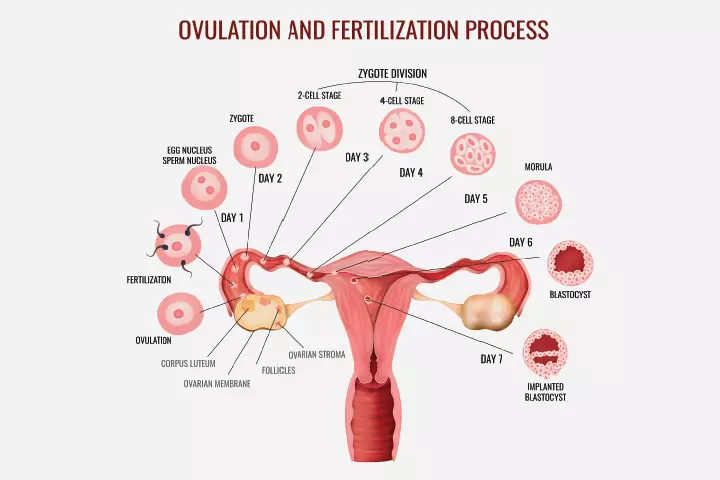
Ovulation is an important part of a woman’s menstrual cycle, where a mature ovarian follicleiA fluid-filled cavity in the ovary that contains the egg before ovulation discharges a viable egg, also known as an ovum, oocyte or female gamete (2).
- On release, the egg travels down the Fallopian tubesiThe tubes connecting the ovaries to the uterus through which the egg produced in the ovaries travel to the uterus where fertilization may take place if it meets a sperm.
- Most women plan conception based on their ovulation calendar as it helps them identify their most fertile days.
Timeline Of A Typical Ovulation
Ovulation time is the most fertile period when your cervix produces a thin cervical fluid that lubricates and empowers the sperm to travel towards the egg faster. A typical ovulation happens once in every menstrual cycle. The ovaries will produce egg-carrying cells or ‘follicles.’ According to a meta-study by the SPD Development Company Limited, in women who have a 28-day cycle of menstruation, 20% of the population ovulated on the 14th day, 27% of them ovulated on the 15th day, and 21% ovulated on the 16th day.
- These follicles enable the production of a fertile egg.
- Once the sperm reaches the egg, fertilization takes place resulting in pregnancy.
 Quick fact
Quick factRecent Findings Over Fertility Treatments
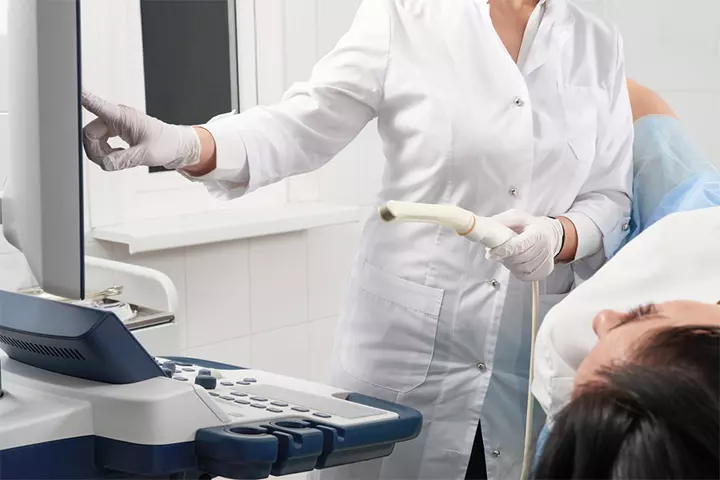
Can you ovulate twice in a month? Well, real-time trials at fertility clinics declare the possibility of women ovulating more than once a month (6-10% only) (3).
- The trial involved evaluation (via high-resolution trans-vaginal ultrasound) of 60 women between the age group of 18 and 40 years.
- Measurement of the follicles of the subjects over a time-span of six weeks revealed that at least six subjects ovulated twice.
Causes For Multiple Ovulations
According to an animal study, researchers are now of the opinion that the hormone progesteroneiA female reproductive hormone that plays an important role in menstruation, pregnancy, and breastfeeding as a catalyst for multiple ovulations in a cycle and a drop in the hormone’s level may cause ovulation induction more than once (4). Corpus luteumi produces progesterone which normally suppresses LH secretion and that in turn suppresses ovulation in a normal cycle. However, in certain rare situations, 2 waves of ovulation may occur.
(4)
. Corpus luteumiA temporary cyst that forms on the ovary every month after ovulation and prepares the uterus for conception by releasing progesterone produces progesterone which normally suppresses LH secretion and that in turn suppresses ovulation in a normal cycle. However, in certain rare situations, 2 waves of ovulation may occur.
- Corpus Luteum may at times secrete a reproductive hormone called luteinizing hormone.
- The hormones secreted, i.e. progesterone and luteinizing hormone, decide the frequency of ovulation.
- Experts also opine that if the reproductive system produces a dominant follicle during a single cycle, it may trigger dual conception by enabling two waves releasing eggs in a single month.
Factors That Increase The Probability Of Dual Or More Ovulation
Can you ovulate more than once a month? The process of ovulation is as unpredictable as pregnancy. There is no guarantee as to when you are likely to ovulate more than once in a single cycle.
- Physical, emotional and lifestyle factors contribute to the possibility.
- There are high chances of ovulating more than once if you are undergoing infertility treatment (5). In IVF, we sometimes do double stimulation to retrieve more eggs where ovarian reserve is poor
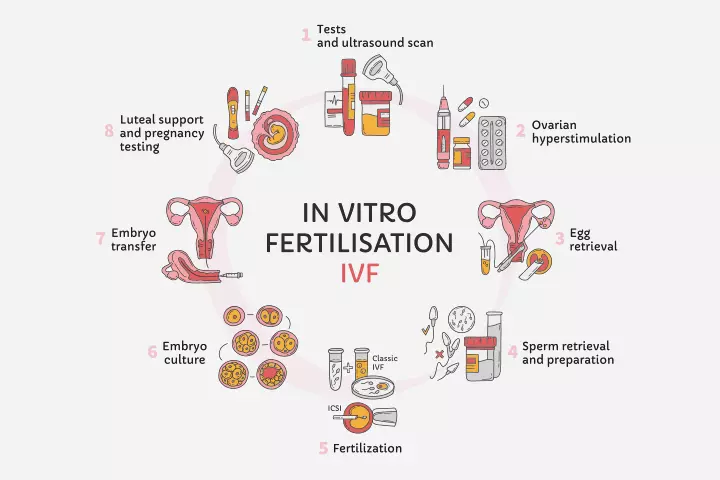
- Family history also predisposes to multiple ovulations.
Keeping Track Of Dual Ovulation
If you are keen on tracking the chances of dual ovulation in a single month, you should consult a reputed fertility specialist. An expert can thoroughly analyze your ovulation period and pattern, guiding you on the best time to get pregnant to maximize your chances of conceiving.
 Quick tip
Quick tipGeneral Measures To Apply During Ovulation
The below measures can help you understand your ovulation cycle and plan your pregnancy better:
- The cervix will produce a clear thin liquid (cervical mucus) that stretches between the index finger and thumb. This change in cervical mucus is one of the common ovulation symptoms that indicates the body is preparing for potential fertilization (2).
- Calculate your fertile days based on the onset of your monthly periods.
- Keep track of the basal body temperature while ovulating.
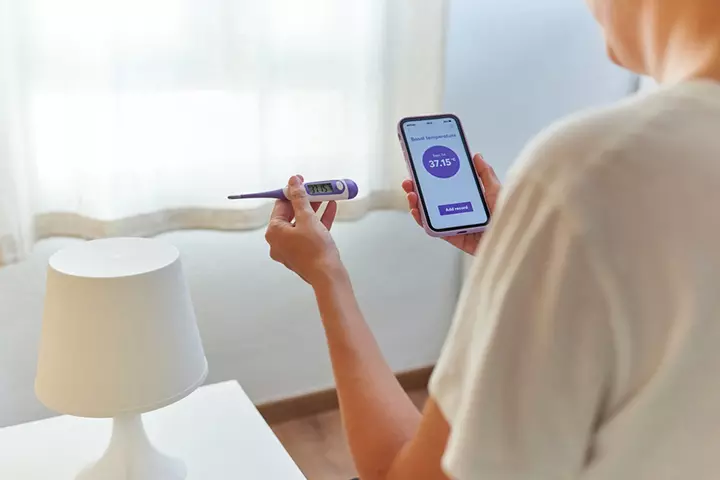
- Boost chances of pregnancy with a timely intercourse with your partner.
- Ovulation predictor kits may help track ovulation.
Frequently Asked Questions
1. How many days after your period do you ovulate?
Ovulation period occurs between day 11 and day 21 after your last period (7).
2. Do I ovulate on the same day every month?
Every month and for each individual, ovulation time and duration could be different. Ovulation usually happens 14 days before the beginning of the next menstrual period, but this might vary depending on the duration of the menstrual cycle (8). For example, some women have 21-day periods, while others have 35-day cycles. Stress, illness, weight changes, and exercise routines can also influence ovulation.
3. Can I ovulate more the older I get?
It is improbable that you ovulate more as you age because women have a fixed number of eggs in their ovaries. This number may decrease as you get older (9).
4. What is hyperovulation, and how does it differ from regular ovulation?
Hyperovulation occurs when the ovaries release multiple eggs during a single menstrual cycle, while regular ovulation typically involves the release of one egg per cycle. It causes multiple follicles to mature and release eggs simultaneously and is the biological mechanism behind non-identical (fraternal) multiple pregnancies (10).
Couples trying to conceive may be tracking their ovulation as it gives you the best chance to get pregnant. It may be surprising for couples to know that some women may ovulate more than once during the same month. Hormones, familial inheritance, and certain medical treatments may be responsible for ovulation twice a month. If you are trying to conceive, you may check with your doctor and keep looking for signs of ovulation, such as body temperature or the texture of your cervical mucousiA fluid released by the cervix that helps determine the time of the menstrual cycle . Your doctor may perform scans to know when and how many times you are ovulating within a month.
Infographic: Factors That Increase The Probability Of Dual Or More Ovulation
In a rare condition called dual ovulation, a woman can ovulate more than once in a single menstrual cycle. So, are you trying to conceive or have you been experiencing ovulation twice without any known reason? Then, scroll through this infographic to learn about the factors that may increase the possibility of its occurrence.
Some thing wrong with infographic shortcode. please verify shortcode syntax
Wondering if it is possible to ovulate more than once in a month. Learn in this video more about this phenomenon, is it true, and if yes, why does it happen?
References
- When are you more likely to conceive?
https://www.yourfertility.org.au/everyone/timing - Ovulation.
https://www.betterhealth.vic.gov.au/health/conditionsandtreatments/ovulation - Owen Dyer; Women may ovulate two or three times a month.
https://www.ncbi.nlm.nih.gov/pmc/articles/PMC1126506/ - Progesterone, ovulation, and pregnancy.
https://extension.psu.edu/progesterone-ovulation-and-pregnancy - Fertility drugs and the risk of multiple births.
https://www.reproductivefacts.org/news-and-publications/fact-sheets-and-infographics/fertility-drugs-and-the-risk-of-multiple-births/ - Pregnancy – identifying fertile days.
https://medlineplus.gov/ency/article/007015.htm
Community Experiences
Join the conversation and become a part of our nurturing community! Share your stories, experiences, and insights to connect with fellow parents.
Read full bio of Dr. Meenu Vashisht Ahuja
Read full bio of shreeja pillai
Read full bio of Rebecca Malachi
Read full bio of Aneesha Amonz





